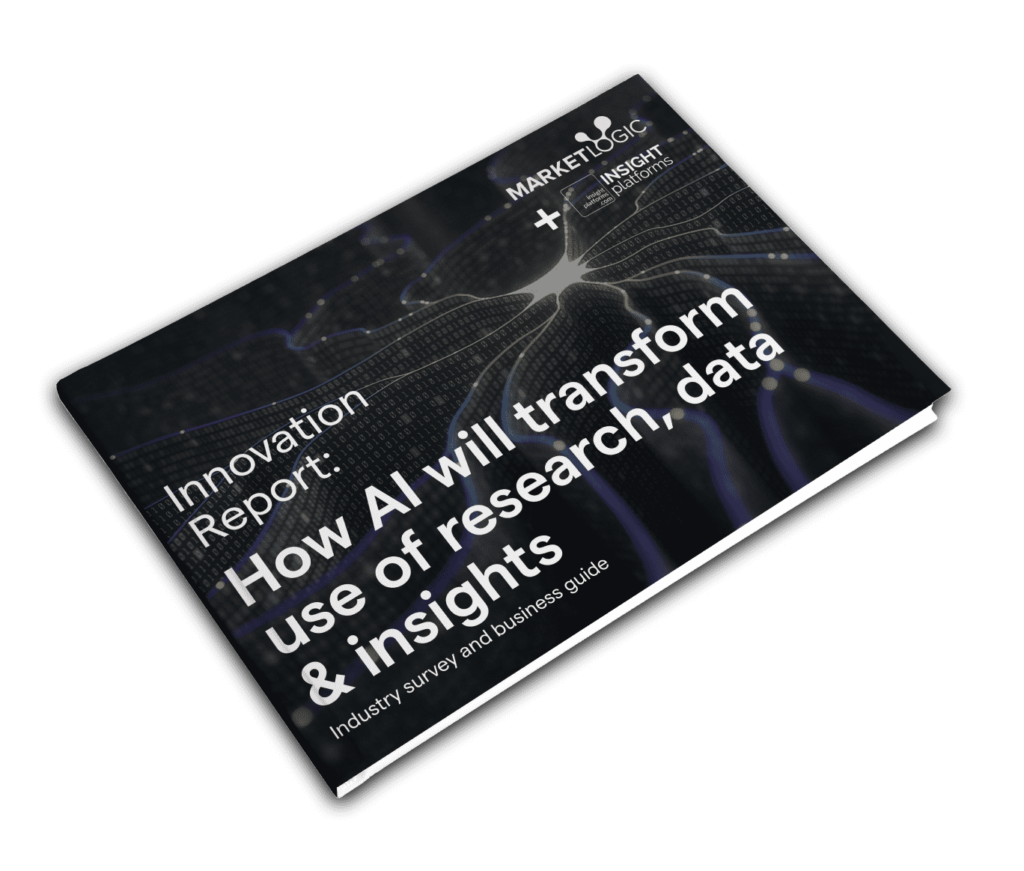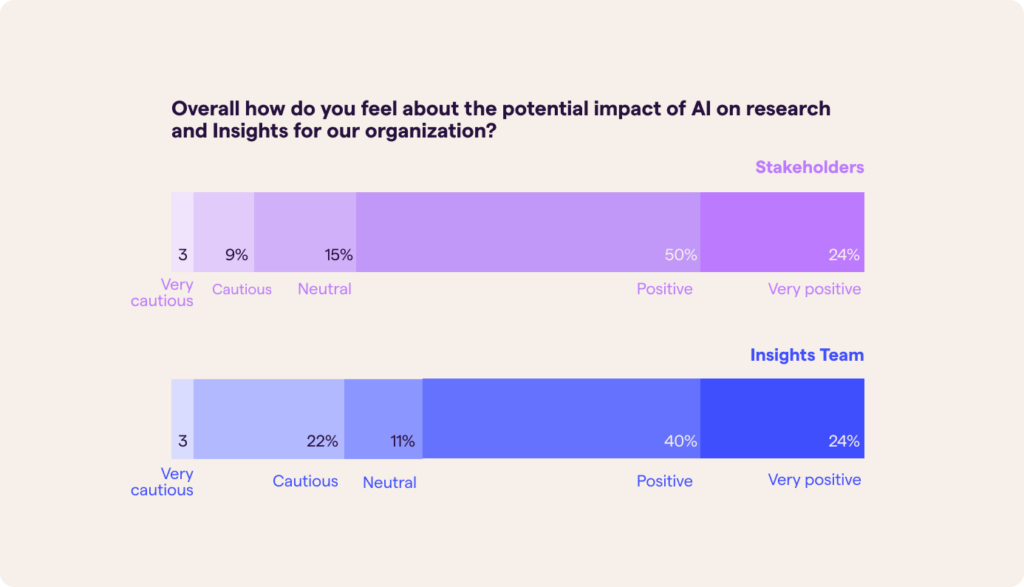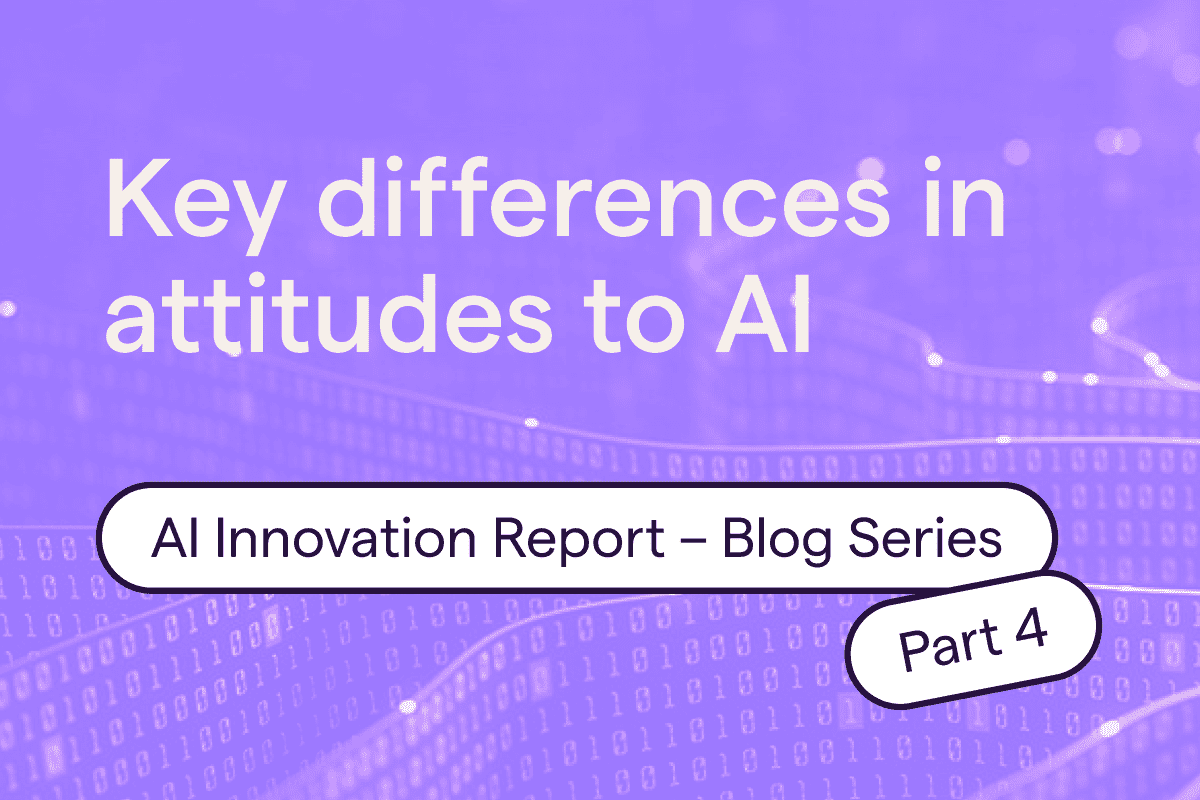As the research shows, as the data and insights industry transforms by adopting Large Language Model (LLM) technology, attitudes to AI vary. Many organizations are embracing productivity improvements and business impact from using Artificial Intelligence (AI) for insights. But other companies, especially in highly regulated industries, have legitimate concerns about the rapid pace of progress, the risks to data quality, and the disruptive impact on teams.
These differences in attitudes to AI exist not only between organizations but also within them. Insights teams and their stakeholders, for example, diverge significantly in a number of key areas. This article highlights some of these important differences in attitudes towards AI that we found in our landmark research with enterprise organizations.
Download the full white paper here or continue reading to understand how perceptions of AI vary between these teams — and learn how you can prepare your own team to navigate these forthcoming changes.

Overall attitudes towards AI
Looking at differences in attitudes to AI: As we have covered in detail in the first post of our blog series, based on the data, both insights teams and stakeholders view AI as a predominantly positive development — with 64% of teams and 75% of stakeholders describing themselves as ‘positive’ or ‘very positive’ about the technology’s impact on research and insights.
The most beneficial outcomes of AI are seen in its ability to unearth new insights, enhance productivity for insights teams, and better manage existing knowledge.

We will automate many of the housekeeping duties and allow us to focus on the interpretation and application of the insights.”
Insights team, Software / Technology industry
It will increase our use of market research by [letting us] process the information quickly and efficiently“.
Stakeholder, Healthcare / Pharmaceuticals
When we look at the impact of AI on insights management, we should be aware that the democratization train left the station some time ago, and self-service is now a widely established model in many organizations.
Insights teams’ and business stakeholders’ concerns about AI in insights
Looking at differences in attitudes to AI, Despite the enthusiasm, there are some reservations. A quarter of the insights teams in our study were cautious or very cautious about AI.

Insights teams worry most about accuracy and maintaining research standards; while stakeholders are more concerned with compliance and confidentiality.

GenAI is not a mature tool yet … there is a risk that people not familiar with research use AI without thinking about sources and the questions they ask.”
Insights Team, Software / Technology industry
Where AI will have the biggest impact
Stakeholders and insights teams identify similar use cases as most promising for AI, and this is the area of greatest alignment. In fact, more than 75% of insights teams and 68% of stakeholders have already adopted AI for at least one research and insights task.
The most common uses in both groups are for survey data analysis, qualitative research analysis, and the search of existing knowledge. The adoption of AI for these tasks is set to increase significantly in the future.
How AI may alter insights workloads, roles, and skills
Some of the most striking differences in attitudes towards AI are in the area of organizational impact.

Stakeholders have higher expectations than insights teams that AI will democratize access to research and insights, reduce costs, and improve ROI tracking.
73% of stakeholders see AI as a catalyst for increased demand for research and insights, whereas only 53% of insights teams agree. This has profound implications for the management of insights going forward – but it’s not the only area of significant divergence.
AI’s predicted impact on time savings — particularly for tasks related to data analysis and knowledge search — leads to speculation about headcount pressure amongst insights teams: almost 40% predict that AI will lead to a reduction in their numbers.

Stakeholders, on the other hand, see a greater reliance on insights departments in the future as a result of AI, despite the increased adoption of self-service tools for analysis tasks.
Expert advisory support for communicating insights, storytelling, and helping business users interpret data are all set to be in high demand.

Where insights teams and stakeholders diverge on attitudes to AI
The differences in attitudes towards AI between insights teams and stakeholders clearly present a challenge for leaders.
On the one hand, there is a strong appetite and expectation that AI will lead to increased self-service by teams beyond the insights department. This is likely to exert pressure to reduce the headcount within research and insights teams.
On the other hand, it looks likely that AI will generate increased overall demand for insights as friction reduces, and a greater reliance on expert support. This holds true even for analysis tasks — the most likely to benefit from AI — perhaps because stakeholders anticipate ever-increasing complexity in interpreting data.

How can you prepare your insights team for this AI-powered future?
This increased demand for insights is encouraging for insights leaders: Stakeholders accept they can’t do everything themselves with AI, and clearly value expert support for storytelling and interpretation.
For your team, this suggests a number of actions you can take now:
- Identify which processes can be automated through AI and begin piloting tools that can generate efficiencies in your team’s workflow
- Work with stakeholders to develop the rules, guardrails, and support processes for democratizing access to insights through AI
- Invest in the skills development required to move your team away from basic analysis tasks to advisory and consultative activities as these will be in high demand.
And lastly, enjoy the ride! For many years, insights leaders have wanted to take their teams ‘upstream’ and play the role of strategic advisors at a senior level. Now, as our data on attitudes towards AI demonstrates, AI may just help you to accelerate that shift.
This concludes our four-part installment series on AI Innovation. Be sure to read the earlier posts here.


